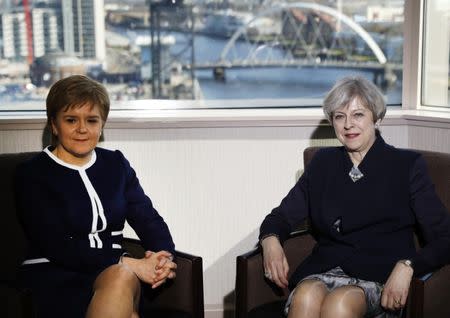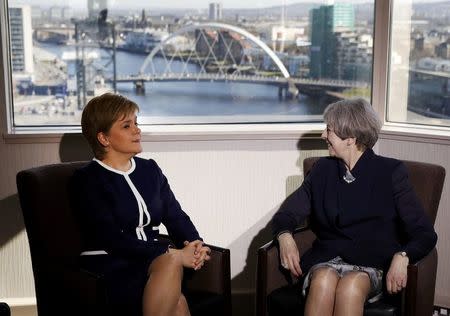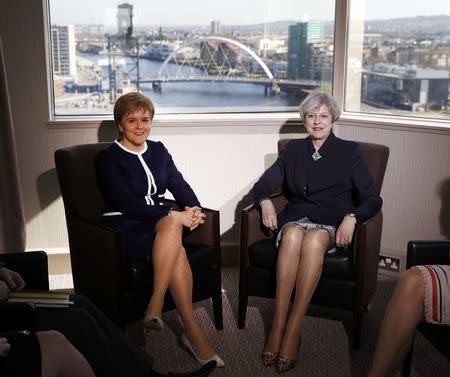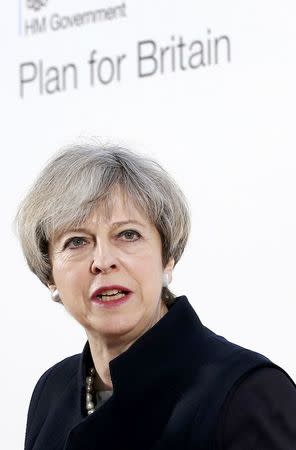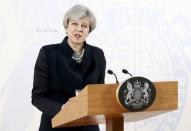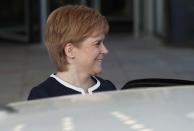May meets Sturgeon after blocking new independence bid
By Russell Cheyne EAST KILBRIDE, Scotland (Reuters) - Prime Minister Theresa May on Monday held her first meeting with First Minister Nicola Sturgeon since blocking Scotland's bid for a second independence referendum - talks Sturgeon described as "cordial and businesslike." The pair met just a day before Scotland's devolved assembly resumes a debate on independence that is expected to give Sturgeon authority to demand a second referendum. Sturgeon is pressing for a referendum in the second half of 2018 or the first half of 2019, before Britain leaves the European Union, but May has told her "now is not the time." Earlier, May had said unity was crucial to Britain winning a good divorce deal from the European Union in talks that she will formally begin on Wednesday. Sturgeon said the meeting had been businesslike and cordial but that there had been no guarantees from May that any powers coming back to the UK from the EU would be devolved onto Scotland. "I had been under the impression ... that she was coming to offer something in the way of more powers (for Scotland)," she told the BBC. "It turned out that wasn't the case." There was no immediate comment on the talks from May's Downing Street office. Earlier, May told staff working on international aid that together, the United Kingdom was "an unstoppable force". May is battling to keep the United Kingdom together after Britain's vote to leave the EU revealed deep divisions, with England and Wales voting for Brexit, while Scotland and Northern Ireland supported staying in the bloc. She wants to try to stem demands in Scotland for a new independence referendum which could rip apart the world's fifth largest economy and encourage nationalists in Northern Ireland to follow suit. "As Britain leaves the European Union, and we forge a new role for ourselves in the world, the strength and stability of our union will become even more important," she told staff from the Department for International Development in East Kilbride in southern Scotland. "When we work together and set our sights on a task, we really are an unstoppable force," she added. In an independence referendum in 2014, Scotland voted against breaking away by 55 to 45 percent. (Writing by Elizabeth Piper, Editing by Stephen Addison)

 Yahoo News
Yahoo News 